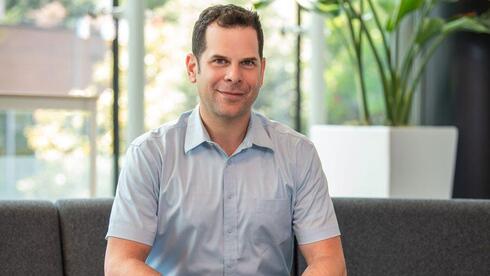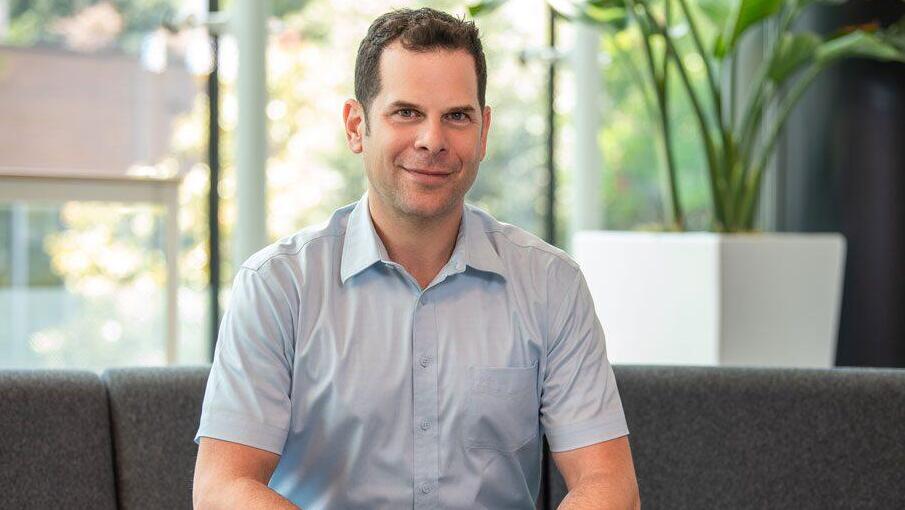
2024 VC Survey
“The Israeli ecosystem as a whole has emerged strong, supportive, and capable”
Next47’s Moshe Zilberstein joined CTech to discuss how the local tech community bounced back from a challenging 2023 amid war.
“For most of the Israeli ecosystem, October was a lost month, making it tough for Q4 to outperform Q3. Because 2023 was so challenging, startups continued doing what they do best: adapt,” explained Moshe Zilberstein, Partner at Next47. “They recalibrated expectations, reduced burn rate, and increased their resilience to compensate for key employees who were drafted.”
Despite the challenges posed to Israel and Startup Nation, Zilberstein has assured CTech that the tide is turning in 2024. “Investors also stood up to help their portfolios. Overall the ecosystem as a whole has emerged strong, supportive, and capable—ready to tackle 2024,” he added.
VC fund ID
Name of the fund: Next47
Total assets: $1B+
Leading partners: Lak Ananth, Matthew Cowan, T.J. Rylander. Moshe Zilberstein in Israel
Latest investments in Israel: Radiant Security, Homez, Metadata
Selected portfolio companies: VAST Data, Claroty, Zesty, Noname Security
From your perspective, was 2023 a ‘lost year’, or can the events that happened during it be seen as a springboard for opportunities in 2024?
2023 was a challenging year, yet certainly not a lost one. The first half was difficult for sales given macro headwinds, especially when contrasted with the aggressive goals companies set during the 2021-2022 frenzy. However, the proliferation of AI brought new opportunities across the board. Startups started leveraging AI in product, internal processes, and messaging, and by the second half of the year, we started seeing increased sales velocity. The industry as a whole was optimistic towards Q4, but of course, things became more challenging after October 7th. For most of the Israeli ecosystem, October was a lost month, making it tough for Q4 to outperform Q3. Because 2023 was so challenging, startups continued doing what they do best: adapt. They recalibrated expectations, reduced burn rate, and increased their resilience to compensate for key employees who were drafted. Investors also stood up to help their portfolios. Overall the ecosystem as a whole has emerged strong, supportive, and capable—ready to tackle 2024.
What do you believe is more crucial to the state of Israeli tech: the influence of global processes and the global economy, or the local events ranging from the political protest to the war state?
The global economy is beyond our control, resembling the unpredictability of the weather with forces that speed up, slow down, and affect the entire technology sector worldwide. However, locally, the government does have the levers and capacity to influence, and therefore, has a crucial role in ensuring the vitality of the Israeli tech ecosystem.
The Israeli tech industry relies on venture capital funding. VCs take a risk by investing in unproven businesses with the goal of a future reward. For that reason, and due to the objective hurdles Israeli tech always has to cross (being further removed geographically from the market, opposite hours, cultural differences, etc.), the local teams have to work at their maximum effectiveness to stay competitive at all times. The risk of the judicial reform, followed by the war, made it more challenging to perform at maximum efficiency. This adds to the risk side and does not add to the reward side of the equation, potentially making it more challenging for startups to attract investors that may have competing companies to consider in alternative geographies. To simplify, in 2022 the Israeli tech ecosystem looked more attractive than it did in 2023.
Yet, this is not a binary game. Great startups will continue to attract great investors, and great investors will continue to invest despite hardships. At Next47 we never stopped believing in the local ecosystem. We see the amazing opportunities brought by the brightest minds, and we’re actively working with teams to finalize investments.
Has the prestige of Israeli high-tech been damaged, or are the protests and the war merely a 'small bump in the road' from which the sector can recover within months?
Realistically, it’s probably something in between. The conversations that we have both at home and abroad always touch on it in some way. While there is a lot of optimism, the messages are typically straightforward, and the general vibe is that “we” need to address both of these issues in a scalable and constructive manner. Customers, investors, and ecosystem partners are hopeful that we avoid veering off-course by these ‘bumps’.
How much effort was required of you to maintain the fund's status with your investors in 2023? What were their primary concerns and how did you address them?
Next47 has been and will continue to be committed to Israel. We are here for the long term and remain convinced that Israel and the local tech ecosystem will prevail.
How are you preparing for the most pessimistic scenarios, such as the continuation of the war in Gaza deep into 2024, the opening of another front in the north, or further reduction of government support for high-tech?
Remaining optimistic and putting our trust in the resilience of our ecosystem is key. The ecosystem continues to recover and has shown very creative ways of dealing with the reserve duty drafts, which makes us even more optimistic. While there is a pessimistic option and playbook, we are not overly concerned as our portfolio has been strong and is ready to tackle such challenges should they arrive.
How many investments did you make in 2023, and how does it compare to 2022?
We haven’t seen significant changes in activity in terms of amount and number of deals between those years. I’m hopeful that in 2024 we will see an increased number of deals compared to 2023.
Which high-tech sectors will you focus on in the upcoming year? Which areas will maintain their prominence, and which ones appear less attractive?
Next47 is focused on B2B Enterprise Software. Our bread and butter domains are IT, Security, and AI. We will continue focusing on these while exploring opportunities in additional domains.
Which type of companies stand a better chance of garnering increased attention from VC funds this year - early-stage or advanced rounds?
I think both can be attractive in 2024. Early-stage companies born in an era where money isn’t ‘free’ tend to focus on fundamentals and create meaningful value. Later-stage companies that are showing nice and steady growth are becoming attractive again.
What changes will you implement in your approach to evaluating investments in startups in the coming year, compared to the previous two years? What practices will you abandon, and what criteria will you now demand from founders?
The basics of building a great company haven’t changed much in 2024 compared to previous years. We're always looking for a strong, subject matter expert team that leverages expertise and the latest technology advancements to tackle a large problem.
The world is changing rapidly, and AI will continue to change every way we do business. In 2024, we will look for startups that leverage AI to the maximum as an indication of efficiency.
Do you think it is likely we will witness encouraging IPOs, the emergence of unicorns, or remarkable exits in 2024?
Yes. The global financial climate is looking rather positive. We’ve already seen some interesting IPOs, specifically: Instacart, Klaviyo, and Arm Holdings. As interest rates come down, we will see additional encouraging IPOs.
Provide an example of an intriguing investment you made in 2023. What sets this company apart, or what is distinctive about its sector?
Radiant Security leverages AI to help companies battle the overwhelming amount of alerts and noise that the security operations center (SOC) faces. Radiant’s core team were previously executives in Exabeam and Imperva. These are subject matter experts who are leveraging the latest advancements in AI to tackle a huge problem that applies to almost any sizable organization.
Practical and current tips for founders planning upcoming money-raising efforts - focus on the current market environment and sentiments.
- Adjust valuation and size expectations to current market conditions
- Know your market deeply and have a clear understanding of which key elements are missing that are needed to grow your business
Name two portfolio companies that you think will thrive in 2024:
VAST Data
Sector + description of the product: Data Infrastructure for AI
Investment amount + total: Company raised >$300M
Founders + year of establishment: Renen Hallak, 2016
Reasoning why this is their year:
The VAST Data Platform is based on a strong technology that unifies storage, database, and compute to power AI in modern data centers and clouds. The proliferation of AI creates huge opportunities for VAST.
Noname Security
Sector + description of the service: API Security
Investment amount + total: Company raised >200M
Founders + year of establishment: Oz Golan, Shay Levi, 2020
Reasoning why this is their year:
APIs play the primary role in connecting businesses to one another. API security is becoming top of mind for security teams and a priority investment in 2024 for both deploying and consuming APIs. Noname has the most comprehensive solution in API security and is primed for the occasion.













